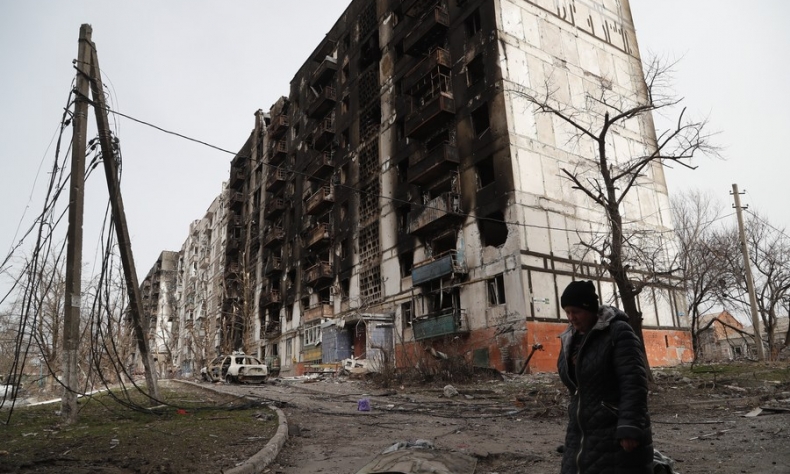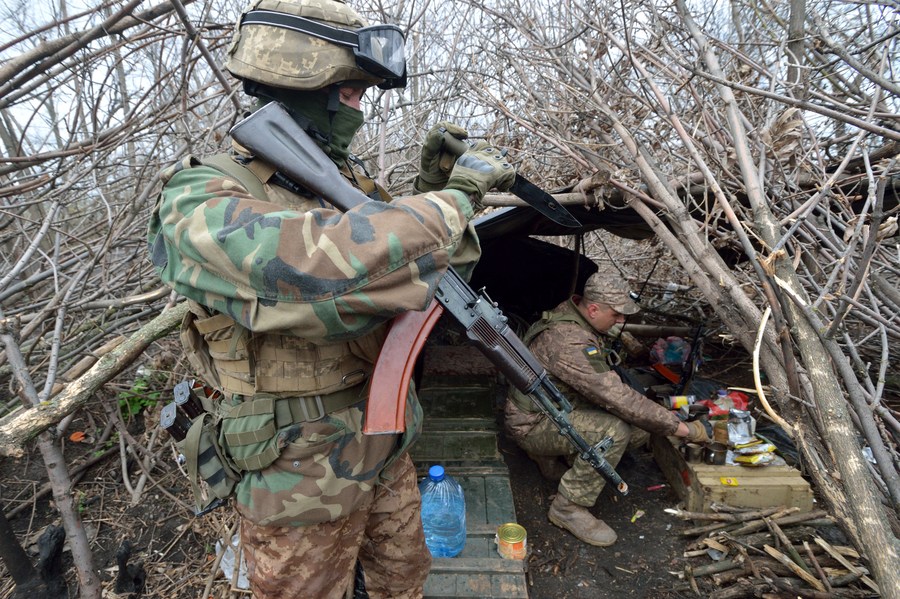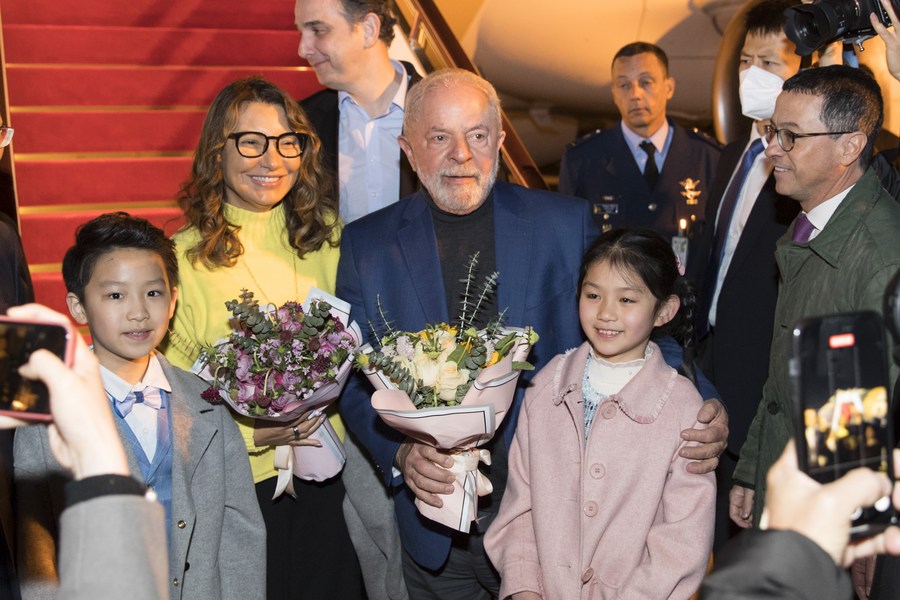Brazil and China Join Hands for Peace in Ukraine

The world needs peace, cooperation, and development, which converge with Lula’s proposal for creating a G20 of peace, to strengthen Sino-Brazilian relations and recognize China’s benign role as a mediator of conflicts.
Both Brazil and China have expressed their willingness to mediate the Ukraine crisis and help restore peace in Ukraine.
Chinese President Xi Jinping and Ukrainian President Volodymyr Zelenskyy had a phone conversation on April 26. The two leaders exchanged views on China-Ukraine relations and the Ukraine crisis. Xi said that “China will continue to facilitate talks for peace and make its efforts for early ceasefire and restoration of peace.”
As a joint effort, Brazil and China have in-depth communication on the political settlement of the Ukraine crisis. The two countries believe that dialogue and negotiation are the only viable way to end the crisis.
During a recent visit to Beijing, Brazilian President Lula declared his intentions to cooperate with China to end the war in Ukraine. Among his statements, he also said that it is necessary that the United States “stop encouraging war” and, together with the European Union, “start talking about peace.”
Lula’s gesture signaled a change in the profile assumed by Brazil in the face of the conflict which already had vast repercussions, exemplified both by Washington’s criticism of Lula’s speech and Russian Minister Sergei Lavrov’s visit to Brasilia. To understand the impact of such actions on the war scenario, it is important to recapitulate the posture of Brazilian diplomacy since its beginning, the relevance of Sino-Brazilian cooperation for peace, and its respective repercussions.

Days before the beginning of the Russian Special Operation in Ukraine in 2022, former Brazilian president Jair Bolsonaro was in Moscow and declared that Brazil was solidary to Russia in the face of the growing conflicts in Donbas and Luhansk. Months later, he positioned himself at the United Nations General Assembly (UNGA) against unilateral sanctions on Russia and advocated a ceasefire. Even so, Brazil favored the condemnation of the Russian occupation of the territories of Luhansk, Donetsk, Kherson, and Zaporizhzhia at the UNGA.
Since Lula’s inauguration, Brazilian diplomacy has assumed a position of neutrality in the conflict, even though several political and intellectual leaders of the Workers Party have presented critical views of the actions of the United States and the European Union in the conflict. In January, he denied German Chancellor Olaf Scholz’s request to send tank ammunition to the Ukrainians.
However, since Lula visited Washington in February, Brazil has adopted a critical approach toward Russia. In March, Brazil voted again in favor of a resolution at the UNGA condemning Russian moves into Ukrainian territory. In the same vein, President Lula and Foreign Minister Mauro Vieira have made ambiguous public statements about the confrontation, expressing reservations about Russian actions.
During his recent visit to Beijing, Lula finally demonstrated a stronger position on the Brazilian understanding of war’s future. Besides criticizing how the United States has been dealing with the conflict, he reiterated the need for cooperation among different countries for peace efforts. In recent months, Lula had already suggested to French President Emmanuel Macron, German Chancellor Olaf Scholz, and U.S. President Joe Biden the constitution of another G20 of peace. In China, he reiterated this proposal of the G20 of peace with President Xi Jinping and said he understood that China has a crucial role in constructing a virtual peace agreement.

This new position of Brazil is more critical of the actions of the United States and in favor of a leading role for China, Brazil, and other powers in the talks. It was presented at an essential moment in strengthening Sino-Brazilian relations since Lula’s visit resulted in the signing of 15 bilateral agreements between the governments and another 20 trade agreements between companies and public agencies of both countries.
Such moves by Lula have already generated repercussions in the United States. National Security Council spokesman John Kirby said that “Lula replicates Russian and Chinese propaganda without looking at the facts.” The former United States Under Secretary of State for Political Affairs, Thomas Shannon, also criticized Lula’s remarks and even ironized the agreements between China and Brazil to execute commercial operations without using the dollar.
Both Brazil and China have diplomatic traditions of non-interference in the internal affairs of other countries and a long history of contributions to world peace. Lula shows wisdom by recognizing the importance of cooperation with China in front of the Ukraine crisis. It is consistent with the current role assumed by China in the current international political environment. China has played a leading role in mediating conflicts in its regional surroundings and even more distant regions, as exemplified by its influence in the recent rapprochement between Iran and Saudi Arabia in the Middle East.
The United States’ adverse reactions to the peace proposals by Brazil and China will not stop the Sino-Brazilian synergy, and the Brazilian president has already stated in the last few days that no kind of pressure will be able to obstruct the strengthening relations between the two countries. The world needs peace, cooperation, and development, which converge with Lula’s proposal for creating a G20 of peace, to strengthen Sino-Brazilian relations and recognize China’s benign role as a mediator of conflicts.
The author is a Brazilian commentator of international relations and a Ph.D. candidate of Global Studies at Shanghai University.
The article reflects the author’s opinions, and not necessarily the views of China Focus.
 Facebook
Facebook
 Twitter
Twitter
 Linkedin
Linkedin
 Google +
Google +










